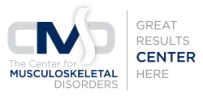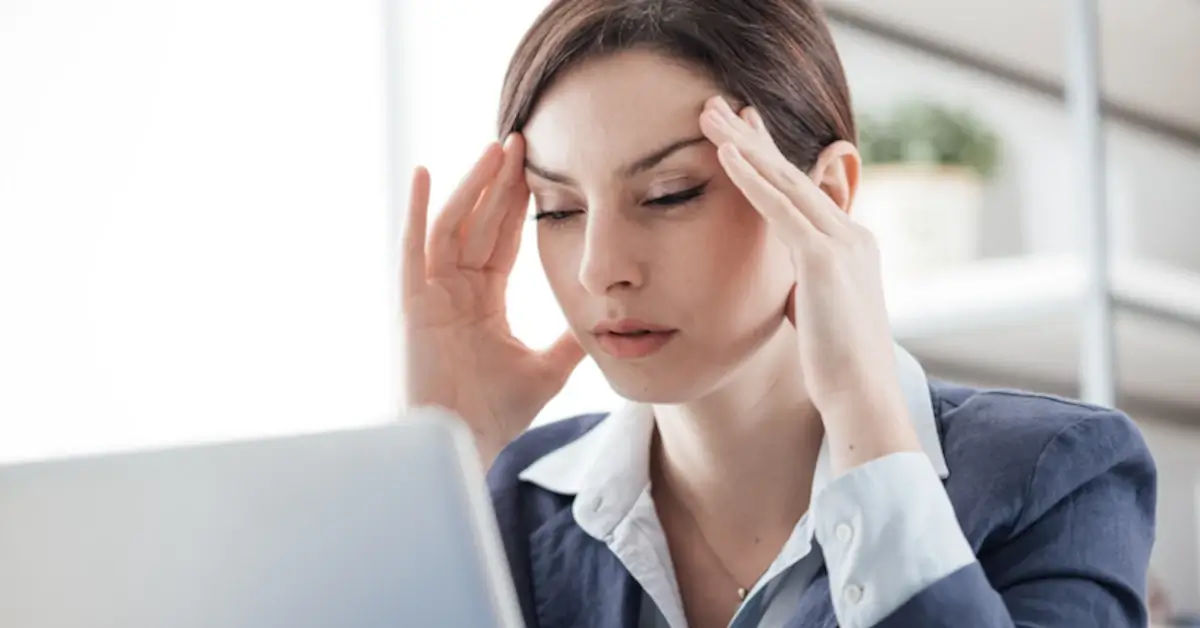Ouch! Your head is pounding! Alas, it must be another headache. But what brings it on and what can be done? Well, there are a myriad of triggers. Below are five of the most common…
Stress
Tension headaches (often called stress headaches) are the most common type of headaches. And as the synonym would suggest, stress is the most likely culprit for bringing these types of headaches on.
Stress can cause headaches in a variety of ways:
- When people are stressed, they often tighten their neck and shoulders, which can cause the “vice-like” compression many people use to describe stress-related headaches.
- Those that are stressed clench their jaws and/or grind their teeth, both of which can trigger headaches.
- Anxiety is a typical perpetrator of insomnia, which can be a risk factor for headaches as well as migraines.
What’s more, once you have a headache, stress can both worsen and prolong your symptoms. According to research, every time a person’s stress levels increase by ten percent, it causes him or her to experience tension headaches 6.3 percent more days per month and suffer migraines 4.3 percent more often.
Relieve stress with sufficient sleep and exercise. Try a bath with Epsom salts. Also, taking up relaxation techniques, such as meditation, can be very effective. Meditation releases stress hormones and sparks the release of serotonin, which helps constrict blood vessels and reduces the inflammation.
Dehydration
The human body is 65 percent water. Dehydration occurs as the result of excessive loss of water from the body. Simply put, when you lose more water than you take in your body becomes dehydrated. The body loses valuable electrolytes, as well.
When dehydration sets in, your brain tissue loses water, causing your brain to shrink and pull away from the skull. This triggers the pain receptors surrounding the brain, giving you a headache. Dehydration also causes your blood volume to drop, which in turn lowers the flow of blood and oxygen to the brain.
Dehydration headaches can occur at the front, back, side or all over the head. They are best identified by the way that movement seems to aggravate them, increasing pain.
To rehydrate, don’t attempt to down large amounts of water in one go. Your body can only absorb a small amount of water at a time. Instead go for small amounts frequently, say one cup every 15 to 20 minutes, until symptoms subside.
Electrolytes are also lost through sweat and play an essential role in water retention. Failure to replace lost electrolytes will lead to difficulties rehydrating. Add some electrolyte powder to your water for fast replenishment.
Medications
Many prescription and nonprescription medicines (even supplements) can cause headaches. A few examples are:
- Birth control pills and hormone therapy for menopause
- Medicines for erection problems
- Some heart and blood pressure medicines
- Vitamins
If you suspect a prescription or over-the-counter medicine is causing headaches as a side effect, speak with your doctor. You may be able to replace the medicine, reduce the dose, or stop the medicine all together. But, you should not do so without consulting your doctor.
Food and Drink
There are a variety of proven headache and migraine triggers, but the concrete evidence of food or drink is thin. However, people do suffer from these triggers. Enough, in fact, that it made our top five.
Typical offenders include:
- Aged-type cheese (Swiss, Parmesan, Brie or cheddar)
- Alcohol (from sulfites in wine, blood rushing to the head or dehydration)
- Caffeine (from withdrawal)
- Chocolate
- Cultured dairy products (yogurt, buttermilk, sour cream)
- Figs, raisins and avocados
- Food additives, like MSG in Chinese food
- Nitrates and nitrites, which are found in processed meats like bacon, hot dogs and lunch meat
- Yeast, bread, doughnuts or other pastries
If personal experience proves that certain foods or drinks trigger headaches, that’s good reason to avoid them. If you stop then resume that particular consumption and your headache returns, then it is likely a true trigger. To facilitate your understanding of cause and effect, it helps to keep a food diary.
Excessive Lifestyle Habits
Lifestyle habits can certainly contribute to headaches. Both lack of sleep and too much sleep can be the culprits. So, sleep just enough. Don’t under or overdo it.
While being sedentary causes its own set of problems, over-exercise can result in exertion headaches from the swelling of blood vessels in your head, neck and scalp. On an ongoing basis, watch your posture. Sit up straight to keep blood flowing and move around to avoid extended periods of time slouching over a desk.
Brightness from a computer screen, overhead lights or even sunlight can cause headaches. Try lowered lights and add a desk lamp.
In summation, do everything in moderation.

